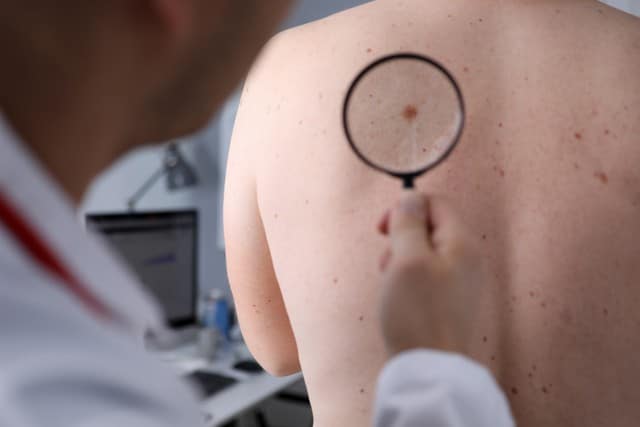
When patients get a diagnosis of skin cancer, especially melanoma, they may be worried about what the future holds for them. Melanoma is the most dangerous type of skin cancer but can be relatively easy to treat when it is diagnosed in the earliest stages. The doctors of Harris Dermatology in Florida strongly encourage patients to not only obtain annual skin cancer screenings, but work with their team if a diagnosis of melanoma occurs.
What happens after patients get a definitive diagnosis of melanoma?
As soon as the results of a skin biopsy returns to the dermatologist’s office as positive for melanoma, patients need to work directly with their doctor to develop an appropriate treatment plan. There are a few ways in which patients can target and treat melanoma. This includes:
- Excision surgery
- Mohs micrographic surgery
- Radiation treatment
- Chemotherapy
The best way to determine the most appropriate option for a patient is to start with the diagnosis and understand the severity of the melanoma. The skin cancers diagnosed in their earliest stages significantly increases a patient’s chance of overcoming the condition. This is why routine screenings are strongly encouraged for patients of all ages. The doctor can then work with an individual to help them decide on a treatment that can assist them with their unique situation. What is beneficial for one patient may not be the best choice for another.
Is melanoma fatal?
Melanoma can spread and can be fatal if not diagnosed and treated as soon as possible. A patient who has a mole or other unusual skin growth that has developed should be seen by a dermatologist to find out if they are dealing with cancerous cells.
Concerned about skin cancer?
Never hesitate to contact a dermatology practice to seek a skin cancer screening. Drs. Brian Harris, H. Ross Harris, and Keith Harris of Harris Dermatology are here to help. Contact one of their two office locations conveniently positioned in Naples and Fort Myers, Florida to book an evaluation with our providers and start taking a proactive approach to preventing skin cancer and spotting it in the earliest stages.

